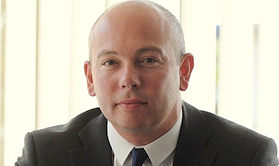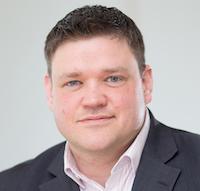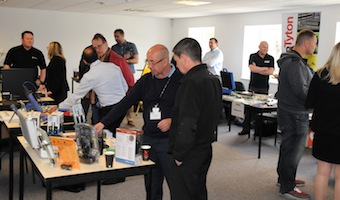 SCC's transformation into a managed service and solutions led business is reflected in its financial results for year ending 31st March 2016. The company reported services turnover up 11% to £177m, but overall revenues of £653m were down 1%.
SCC's transformation into a managed service and solutions led business is reflected in its financial results for year ending 31st March 2016. The company reported services turnover up 11% to £177m, but overall revenues of £653m were down 1%.
Data centre services revenues were up 67% to £43m; and services now account for 27% of total turnover (17% in 2013). Services margins represent 66% of total margins, up from 63% in the prior year and 52% in 2013. EBITDA increased 29% to £24.9m.
The marginal decline of 1% in overall turnover was attributed to a high-turnover/low-margin product revenue reduction of £35m.
The most notable growth in FY16 came from SCC's Cloud Delivered Managed Services (CDMS) business.
SCC's total investment in CDMS surpassed £60m, with further investments in hosted voice & UCaaS specialist SIPCOM, and mobility business One Point completing its services portfolio, adding to investments made in FY15 in connectivity (Fluidata) and SCC's third Tier 3+ Data Centre in Fareham.
These businesses independently generated £26m of revenue in the year, taking combined services revenues past £200m to £203m.
Since its acquisition by SCC in February 2014, M2, Europe's leading Managed Print Services (MPS) business, has enjoyed its best ever period of growth.
SCC & M2 closed FY16 on £46m combined turnover, representing 21% turnover growth, and £4.6m combined EBITDA, up 48%.
In the last year, M2 has grown to employ over 230 people and has 24,000 devices under management in the UK.
FY16 also saw the expansion of M2's regional office network to include London, Bracknell, Bristol, Birmingham, Manchester, Leeds, and Scotland, and the creation of a dedicated public sector division.
SCC Chief Executive James Rigby (pictured above) said: "We've had another strong financial performance in the areas identified in our business strategy as key to SCC's long-term success.
"We continued to make investments throughout FY16 in additional capability, improved facilities and skilled people - all geared towards delivering the very best service to our customers.
"Our services business has grown significantly over the past three years and the forecast is for that to continue. And the opportunity for customers, particularly in the mid-market space, to grow with us has never been so large with the completion of our Cloud Delivered Managed Services proposition in FY16."
SCC also announced a new global delivery centre (GDC) in Vietnam.
SCC Vietnam, headquartered in Ho Chi Minh City, will deliver two main activities - firstly, providing level three and four infrastructure support to customers, and the creation of an Offshore Development Centre to accelerate the development of custom applications.
Rigby added: "It's an exciting time for SCC as we look further East to a location that combines a sufficient time difference with widely-available technical skills. SCC Vietnam will be incorporated by August 2016 and we are aiming for an initial headcount of around 50.
"Vietnam is a country of over 90 million people with an average age of 30. It has a high quality education system, similar to Romania, with over 300 IT-only universities.
"English is widely spoken to a high standard and the time difference of London+7 is ideal for 24X7 customer support."

 Westcon-Comstor has appointed Wayne Mason as Commercial and Marketing Director of the Unified Communications and Collaboration (UCC) Solutions Practice for the EMEA region.
Westcon-Comstor has appointed Wayne Mason as Commercial and Marketing Director of the Unified Communications and Collaboration (UCC) Solutions Practice for the EMEA region. SCC's transformation into a managed service and solutions led business is reflected in its financial results for year ending 31st March 2016. The company reported services turnover up 11% to £177m, but overall revenues of £653m were down 1%.
SCC's transformation into a managed service and solutions led business is reflected in its financial results for year ending 31st March 2016. The company reported services turnover up 11% to £177m, but overall revenues of £653m were down 1%. A trade fair hosted by Nimans marked the official opening of a new £500k Manchester trade counter facility based in Trafford Park.
A trade fair hosted by Nimans marked the official opening of a new £500k Manchester trade counter facility based in Trafford Park.